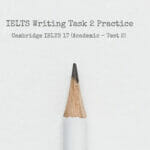Welcome to our comprehensive guide on self-study preparation strategies for IELTS candidates!
In today’s fast-paced world, finding the time and resources to attend traditional language classes can be challenging for many aspiring test-takers. That’s where self-study comes into play.
Self-study not only allows you to learn at your own pace and convenience but also enables you to focus on the specific areas where you need the most improvement. With the wealth of resources and tools available online, combined with a well-structured study plan, self-study has become an effective and viable option for IELTS preparation.
In this blog post, we’ll explore the best self-study strategies that can help you maximize your IELTS score, boost your confidence, and pave the way for academic and professional success. So, let’s embark on this journey toward IELTS mastery together!
To effectively self-study for the IELTS exam, consider adopting the following strategies:
1. Understand the test format:
Familiarize yourself with the structure and format of the IELTS exam, including the four sections: Listening, Reading, Writing, and Speaking. Know the types of questions, tasks, and time allocations you will encounter.
Visit the official IELTS website (https://www.ielts.org/) to learn about the test structure, question types, and scoring criteria for each section (Listening, Reading, Writing, and Speaking).
2. Set a study schedule:
Creating a consistent study schedule helps you allocate time for each test section, as well as reviewing concepts, practicing exercises, and taking mock tests. For example, you could dedicate Monday and Wednesday to improving your Listening and Reading skills, Tuesday and Thursday to Writing and Speaking practice, and Friday to reviewing vocabulary and grammar. Set aside time on weekends for taking full-length mock tests. Adjust your schedule based on your needs and progress.
3. Use official IELTS materials:
Official IELTS preparation resources, such as the Cambridge IELTS books, offer authentic practice tests and materials to help you get a feel for the actual exam. Start with the most recent edition of the “Cambridge IELTS” series (e.g., “Cambridge IELTS 17”) and work your way through the earlier editions. These books provide authentic practice tests, sample answers, and examiner’s comments, allowing you to assess your performance and identify areas for improvement. These books provide valuable insights into the test format and expectations.
4. Focus on your weaknesses:
Identify your areas of weakness and devote additional time and effort to improving those skills. This will help you achieve a balanced performance across all test sections.
For example, if you find it challenging to understand different accents in the Listening section, listen to various English podcasts or watch movies from different English-speaking countries to become more familiar with diverse accents. If you struggle with the Writing section, you might allocate more time to practice writing essays and refining your grammar skills.
5. Develop test-taking strategies:
Learn and practice effective strategies for each section, such as skimming and scanning for the Reading section, or using keywords and paraphrasing in the Writing section.
6. Practice regularly:
Consistently practice exercises, mock tests, and sample questions to build familiarity and confidence with the test format.
Complete practice tests from the Cambridge IELTS books or other reputable sources like the British Council’s website (https://www.britishcouncil.org/exam/ielts) to build familiarity with the test format and timing.
Resources like the Cambridge IELTS books, IELTS websites, and online forums can provide you with a wealth of practice materials to help you build familiarity and confidence with the test format. For example, you might spend one week focusing on listening exercises, followed by a week dedicated to reading comprehension activities. Regular practice will help you reinforce your skills and track your progress over time.
7. Improve your vocabulary:
Expand your English vocabulary by reading articles, books, and newspapers, or using vocabulary-building apps. Keep a vocabulary journal to record new words and phrases, along with their meanings and examples. One effective method is to utilize the “Cambridge Vocabulary for IELTS” series, which focuses on the specific vocabulary needed for the test.
8. Enhance your listening skills:
Strengthen your listening comprehension by exposing yourself to various English accents and contexts. Listen to podcasts, watch movies and TV series, and engage with English-language media. Tune in to news channels like BBC or CNN. Subscribe to English-language podcasts, such as the BBC’s “6 Minute English” or “All Ears English,” to improve your listening comprehension and become familiar with various English accents.
You can also practice with authentic listening materials found in the Cambridge IELTS books or other reputable IELTS preparation resources.
9. Work on your speaking skills:
Practice speaking English regularly with friends, language exchange partners, or online communities. Record yourself speaking and analyze your fluency, pronunciation, and coherence.
One effective way to practice speaking is by using sample questions from the Cambridge IELTS books or other reputable IELTS resources. Select a speaking task, set a timer, and record yourself responding to the question. For example, you could choose a Part 2 speaking task that asks you to describe an interesting person you’ve met. Speak for 1-2 minutes, focusing on fluency, pronunciation, and coherence. Afterward, listen to your recording and evaluate your performance.
Additionally, you can join online forums or language exchange platforms where you can find speaking partners to practice with and receive feedback.
10. Write regularly:
Write essays, letters, and reports to improve your writing skills. Focus on organizing your ideas, developing strong arguments, and using appropriate grammar and vocabulary.
To enhance your writing skills, choose a writing prompt from the Cambridge IELTS books, such as Writing Task 2, which might ask you to discuss the advantages and disadvantages of working from home. Write an essay following the IELTS format, ensuring that you organize your ideas, develop strong arguments, and use appropriate grammar and vocabulary. Once you’ve completed your essay, compare it with the sample answers provided in the book or seek feedback from peers, teachers, or online forums. Regularly practicing different types of writing tasks will help you become more confident and proficient in your writing skills.
You can also practice Writing Task 1 by describing charts, tables, or diagrams based on examples found in the Cambridge IELTS books.
11. Seek feedback:
Share your written and spoken work with others, such as peers, teachers, or online forums, to obtain feedback and suggestions for improvement. Request feedback on your writing style, content, organization, and language use. Implement the suggestions for improvement in your future writing tasks.
12. Take mock tests:
Regularly take full-length mock tests to simulate the actual exam conditions. This will help you gauge your progress, manage your time effectively, and build test-taking stamina.
Use the Cambridge IELTS books or other authentic resources to take full-length mock tests simulating actual exam conditions. This will help you gauge your progress, manage your time effectively, and build test-taking stamina. Evaluate your performance and identify areas where you need to focus more.
Remember to simulate real exam conditions while taking these mock tests, such as adhering to the time limits for each section and working in a quiet environment.
13. Review and reflect:
Periodically reviewing your progress and adjusting your study plan is essential for successful IELTS preparation. Reflect on your strengths and weaknesses and tailor your preparation accordingly.
After completing mock tests or practice exercises, spend time analyzing your performance. For example, if you consistently struggle with a specific question type in the Reading section, allocate more time to practicing that particular skill. Cambridge IELTS books often include answer keys and explanations, which can help you understand why you may have made certain errors. Reflect on your strengths and weaknesses, and adjust your study schedule accordingly. Continual self-assessment and adaptation will ensure that you’re making the most of your study time and targeting the areas that need the most improvement.
14. Stay motivated:
To stay motivated during your IELTS preparation journey, set realistic, achievable goals for yourself. For example, aim to improve your listening score by one band within a month or complete a specific number of practice tests within a week. As you achieve these goals, celebrate your successes and acknowledge your progress. You can also create a visual representation of your goals and progress, such as a chart or a checklist, and display it in your study area. This will serve as a constant reminder of your objectives and help you maintain focus and motivation as you work toward acing the IELTS exam.
By implementing these self-study strategies and consistently dedicating time and effort to your IELTS preparation, you can maximize your chances of achieving a high score on the test.





0 Comments